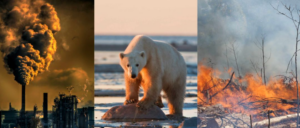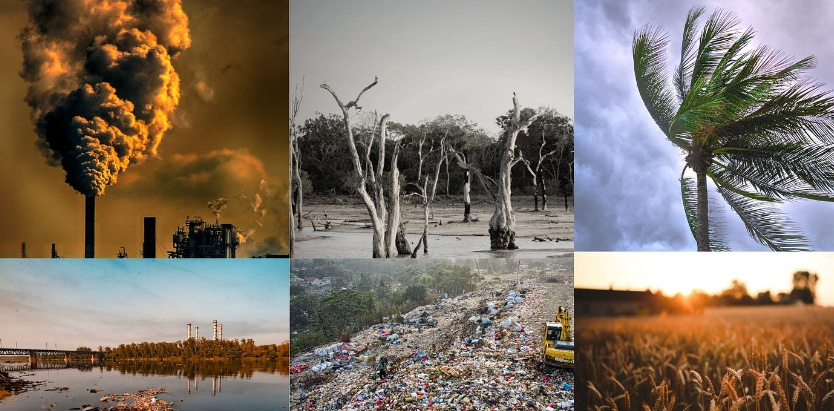Climate change, a consequence of human activities, is significantly altering the world we inhabit. Its effects, felt across the globe, encompass a wide array of environmental, economic, and social dimensions. As we delve into the intricate web of climate change, its repercussions become increasingly evident. From rising temperatures and extreme weather events to melting ice caps and diminishing biodiversity, our planet is facing a multitude of challenges. To comprehend the gravity of the situation, we must explore the far-reaching effects of climate change in various spheres.
Environmental Upheaval
The environment bears the brunt of climate change, with far-reaching consequences. Rising global temperatures lead to the melting of polar ice caps, triggering rising sea levels. This poses a grave threat to low-lying coastal areas, amplifying the risk of devastating floods and displacement of communities. Moreover, climate change disrupts weather patterns, fueling intense storms, droughts, and heatwaves. The delicate balance of ecosystems is disrupted, leading to a decline in biodiversity, as species struggle to adapt to rapidly changing conditions. The loss of crucial habitats threatens the survival of countless plant and animal species, jeopardizing the intricate interconnectedness of the natural world.
Socioeconomic Challenges
Climate change reverberates through various socioeconomic aspects, exacerbating existing inequalities. Impacts are felt most acutely by marginalized communities, who often lack the resources and infrastructure to adapt and recover. Agricultural sectors face reduced crop yields due to altered rainfall patterns and increased pest outbreaks. This poses a threat to global food security and escalates the risk of hunger and malnutrition. Economic losses mount as extreme weather events damage infrastructure, disrupt supply chains, and displace populations. Rising healthcare costs, driven by the spread of vector-borne diseases and heat-related illnesses, strain public resources. Climate change becomes a catalyst for social unrest and migration as livelihoods crumble under its weight.
Public Health Fallout
Climate change poses a significant risk to human health, with consequences ranging from direct physical impacts to indirect consequences on healthcare systems. Heatwaves intensify, endangering vulnerable populations and increasing the likelihood of heat-related illnesses and deaths. Rising temperatures facilitate the expansion of disease-carrying vectors like mosquitoes, exacerbating the prevalence of diseases such as malaria, dengue fever, and Zika virus. Additionally, exposure to air pollution caused by burning fossil fuels and industrial activities increases respiratory illnesses. Disruptions to water and food supplies further heighten the risk of malnutrition and waterborne diseases. The strain on healthcare systems demands adaptive measures and innovative solutions to protect public health.

Economic Transformation
Transitioning to a sustainable economy is both a challenge and an opportunity. Mitigating climate change and adapting to its effects necessitates significant shifts in energy production, transportation, and industry. However, these transformations also present an opportunity for job creation, technological advancements, and economic growth. Investments in renewable energy sources such as wind, solar, and hydroelectric power can reduce greenhouse gas emissions while fostering economic development. Moreover, the promotion of sustainable practices in agriculture, construction, and manufacturing can spur innovation and create green jobs. Governments and businesses must collaborate to incentivize sustainable practices and foster a transition to a low-carbon economy that benefits both the planet and its inhabitants.
Conclusion
In conclusion, climate change manifests itself in various ways, impacting the environment, economy, and human well-being. The urgency to act has never been greater. International cooperation, sustainable practices, and innovative solutions are imperative to mitigate the effects of climate change and secure a sustainable future. By embracing renewable energy, enhancing resilience, and prioritizing the well-being of communities, we can strive towards a planet that thrives in harmony with its inhabitants. It is through concerted efforts, both at individual and collective levels, that








